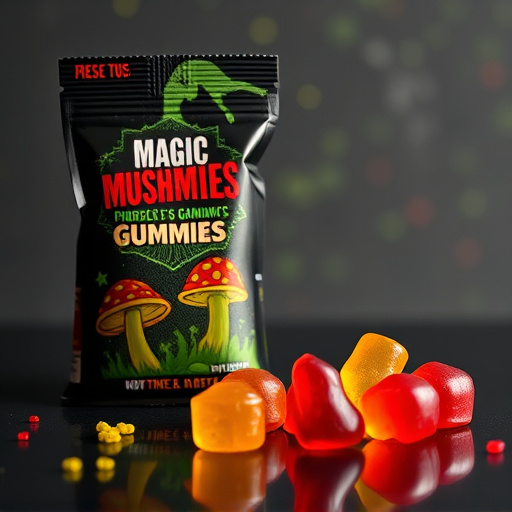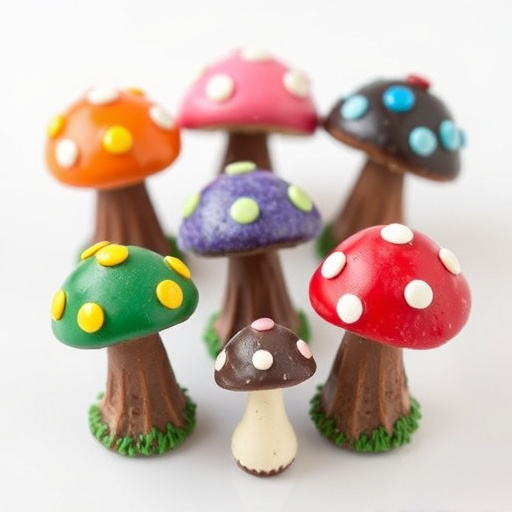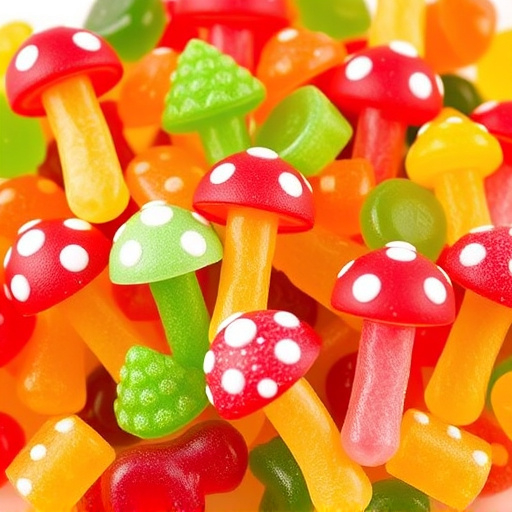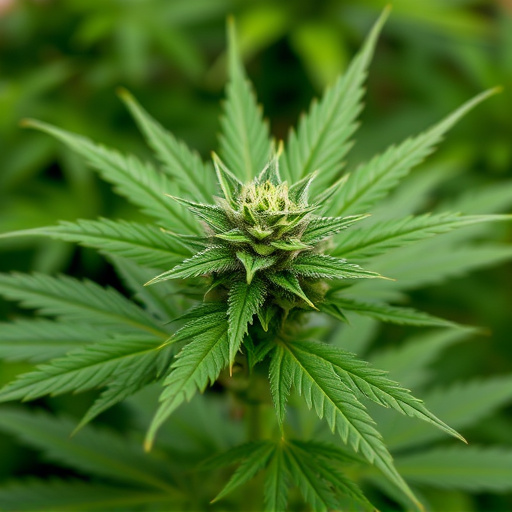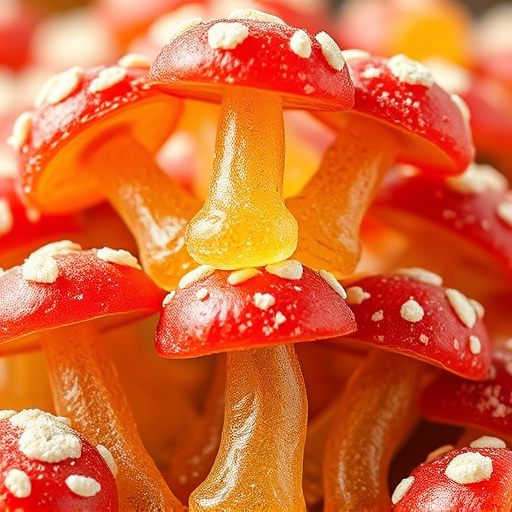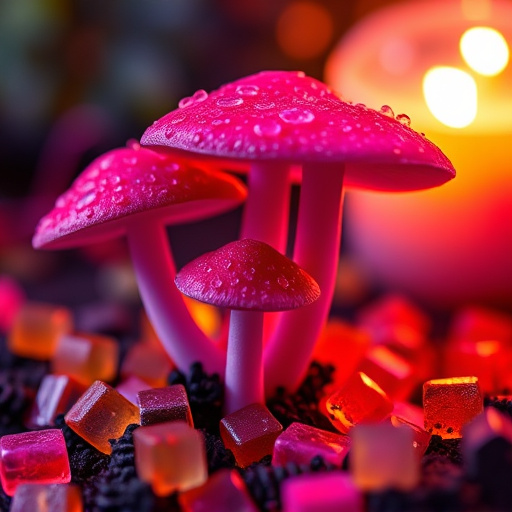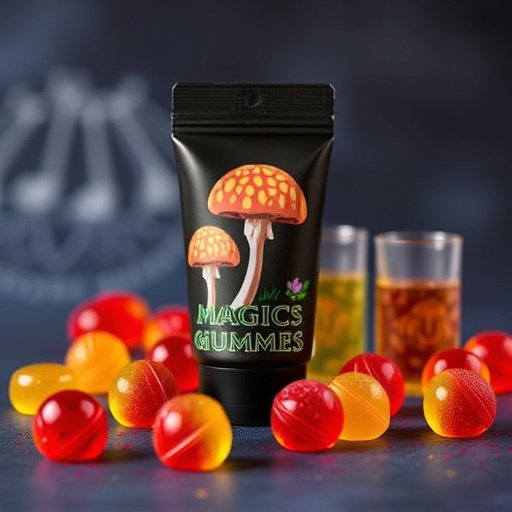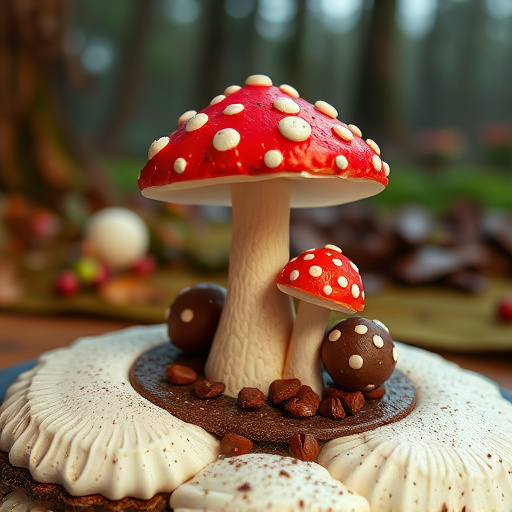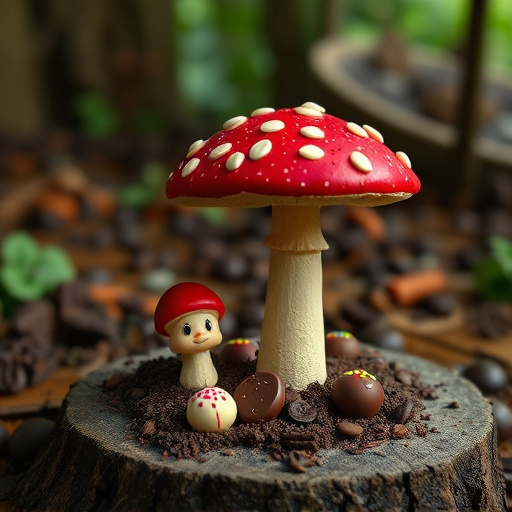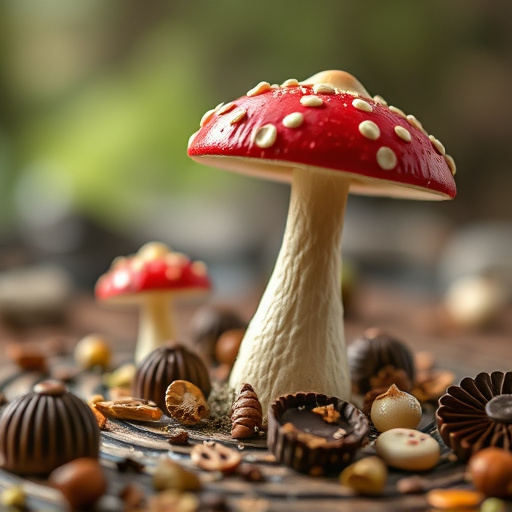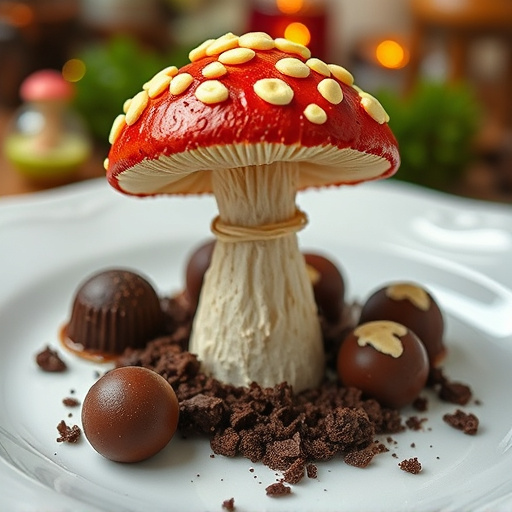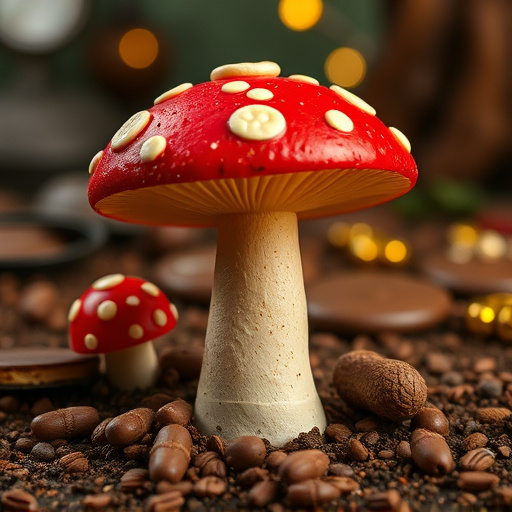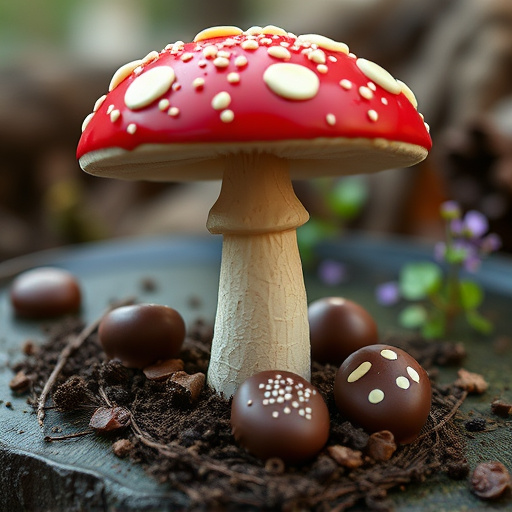Magic mushroom chocolates, rich in psilocybin, are gaining attention for their potential therapeutic benefits, particularly in mental health and creativity through the gut-brain connection. While offering promise, these treats carry risks of intense psychological reactions and lack regulated dosages. The current uncharted territory highlights the need for caution and informed decision-making among consumers as science continues to explore their therapeutic applications.
“Unveiling the intriguing world of Magic Mushroom Chocolates, this article delves into a unique fusion of ancient tradition and modern gastronomy. From the historical use of magic mushrooms in various cultures, we explore their scientific integration into delectable chocolates. The focus lies in understanding the Gut-Brain Connection these treats offer, promising potential mental health benefits. However, we also weigh the risks involved, ensuring a balanced perspective. Prepare to discover a tasty, controversial trend that’s capturing attention.”
- Understanding Magic Mushrooms and Their Historical Use
- The Science Behind Magic Mushroom Chocolates and Gut-Brain Connection
- Exploring the Benefits and Potential Risks of Consuming Magic Mushroom Chocolates
Understanding Magic Mushrooms and Their Historical Use
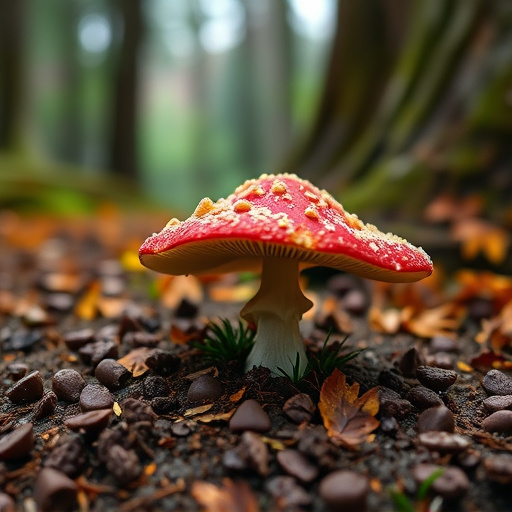
Magic mushrooms, or psilocybin mushrooms, have a rich history dating back thousands of years. They’ve been used by various cultures for their psychoactive properties, often in spiritual and ritual contexts. Traditionally, these mushrooms are known for their ability to induce altered states of consciousness, enhanced creativity, and profound insights. Beyond their cultural significance, magic mushrooms have sparked recent scientific interest due to their potential therapeutic benefits. Research is exploring the mushroom’s impact on the gut-brain connection—the intricate relationship between the gastrointestinal tract and the central nervous system. This connection is becoming increasingly recognized as a key player in mental health and overall well-being, making the study of magic mushrooms in this context particularly intriguing.
The integration of magic mushrooms into modern wellness practices, such as their use in chocolate forms, reflects a growing trend towards alternative and complementary healthcare solutions. Magic mushroom chocolates, while seemingly a decadent treat, represent a potential new avenue for exploring the therapeutic applications of psilocybin. However, it’s crucial to approach this topic with caution, considering the legal status and ongoing research surrounding these substances.
The Science Behind Magic Mushroom Chocolates and Gut-Brain Connection
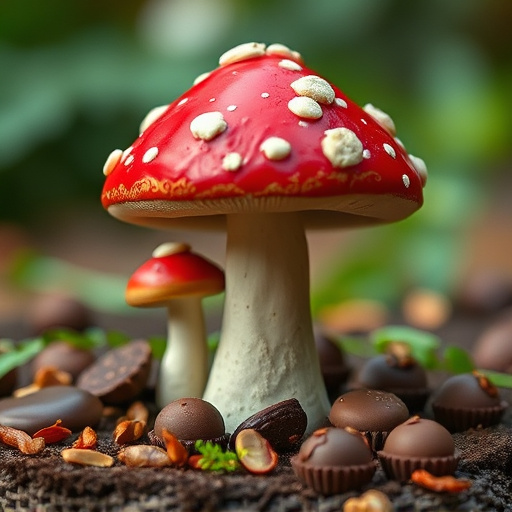
The science behind magic mushroom chocolates explores a fascinating intersection of neuroscience and culinary arts. These chocolates, infused with compounds found in psilocybin mushrooms, offer more than just a unique sensory experience. The active ingredients, primarily psilocybin and psilocin, have been the subject of extensive research for their potential therapeutic effects on mental health. When consumed, these compounds bind to serotonin receptors in the brain, triggering alterations in perception and mood.
One of the most intriguing aspects of magic mushroom chocolates is their impact on the gut-brain connection. The gut is often referred to as our “second brain” due to its extensive neural network. The compounds in magic mushrooms can interact with this intricate system, influencing neurotransmitters and gut hormones. This interaction may contribute to reported improvements in mood, increased creativity, and enhanced cognitive functions, highlighting the profound potential of these chocolates in promoting overall well-being.
Exploring the Benefits and Potential Risks of Consuming Magic Mushroom Chocolates
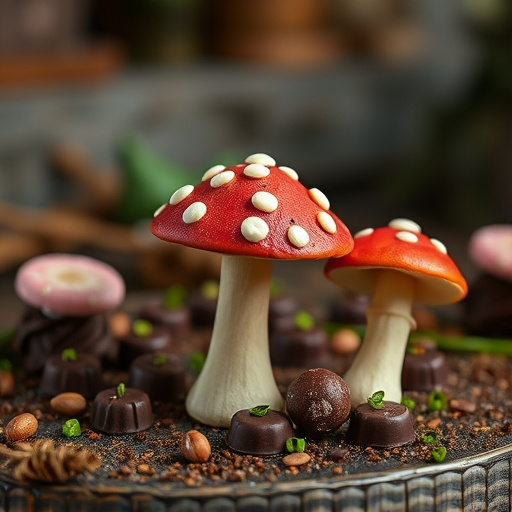
Magic mushroom chocolates, a seemingly indulgent treat, have sparked curiosity and gained popularity for their potential therapeutic benefits. These edibles contain psilocybin, a compound found in certain types of mushrooms, known for its mind-altering effects. Beyond the recreational use, there’s growing interest in the gut-brain connection and how it might be harnessed through consumption. Research suggests that psilocybin can promote a sense of well-being, enhance creativity, and even aid in mental health conditions like depression and anxiety.
However, as with any substance, there are potential risks associated with magic mushroom chocolates. They can induce intense psychological effects, including altered perception, anxiety, or flashbacks in some individuals. Additionally, the dose-response relationship isn’t fully understood, making it challenging to predict exactly how one might react. The lack of regulation and standardized dosages in edible forms further highlights the need for caution. Exploring the gut-brain connection through psilocybin deserves scientific scrutiny, but consuming these chocolates requires informed decision-making and a responsible approach.
Magic mushroom chocolates represent a modern twist on an ancient tradition, combining historical use with emerging scientific insights into the gut-brain connection. While there are potential benefits to this novel delivery method, it’s crucial to approach it with caution. Further research is needed to fully understand both the advantages and risks associated with consuming magic mushroom chocolates. Until then, informed decision-making is key, balancing curiosity with safety as we navigate this new frontier in the world of psychedelic therapeutics.
